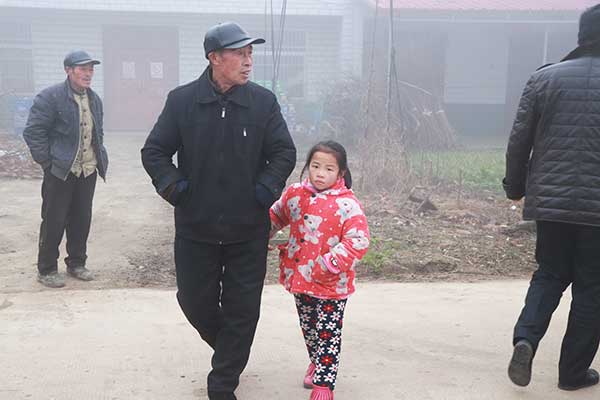 |
|
A "left-behind" girl and her grandfather in rural and semi-urban areas of Fuyang, Anhui province.[Photo by Zhu Lixin/China Daily]
|
In the Houyuan neighborhood of Wuli village, for instance, more than half of the 22 households have children in the care of their grandparents. And, in adjacent Dongzhou, of the settlement's 65 residents, the majority face a similar situation.
Local government officials estimate 2.8 million people from Fuyang's population of 10 million live in different parts of the country.
Guo Lin, chairwoman of the Fuyang Women's Federation, a local body, says the migrants mostly move to wealthier provinces such as Zhejiang and Jiangsu, also in the east, and Shanghai, working low-level jobs in manufacturing, services, construction and other sectors. As a result, 179,000 children under the age of 18 have been left behind here, she says.
The term used to describe such children emerged from the so-called left-behind wives whose husbands had migrated from Anhui and other provinces such as Sichuan, Henan, Guizhou, Hunan and Hubei to mainly coastal cities in the 1990s. In the following decade, the women themselves started to migrate.
A large number of female domestic helpers in Beijing came from Anhui back then.
"The 2016 survey considers the legal working age of young Chinese and of families where both parents have migrated," Guo says of the differences between the new central government study and ACWF's 2013 survey that counted such children even when one parent was missing.
Sociologists have previously also studied migration patterns in the rural reaches of relatively affluent places such as Chongqing and Guangdong province.


























 Raymond Zhou:
Raymond Zhou: Pauline D Loh:
Pauline D Loh: Hot Pot
Hot Pot Eco China
Eco China China Dream
China Dream China Face
China Face






